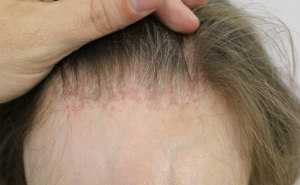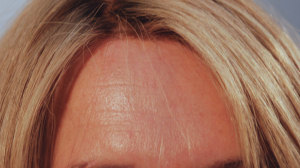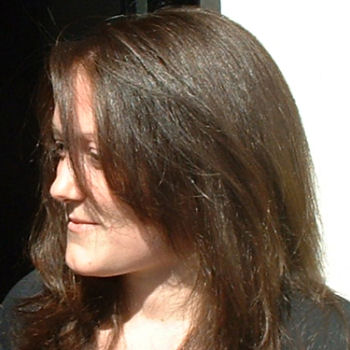The hair is often viewed as a reflection of a person’s identity. With good hair, women feel sexy, beautiful, self-assured, and on top of their game. But when a woman’s hair is in bad shape, too dry, too frizzy, or falling out, her self-confidence is greatly affected. You may not know but you might have a bad habit that affects your hair. Reading online Lucinda Ellery reviews will teach you about them, but below are just a few that you may need to know now.
If you like to wash your hair with hot water, now is the time to stop. It dehydrates strands leading to dry, brittle hair that makes it more prone to snap and fall out easily. So the next time you wash your hair, rinse it with the coolest temperature possible. Blow-drying your hair too often damages the proteins that make up your hair and its protective cuticle. Starving yourself to shed a few pounds can lead to severe hair loss. Eat a healthy diet instead with lots of lean protein.
Your hair strands are more prone to snapping when wet. Avoid aggressive towel-drying and combing your hair after your shower. Tight hairstyles can damage your hair follicles and can lead to traction alopecia. Loosen up! Wear your hair down whenever possible. Protect your hair by making a few simple changes to your lifestyle. Follow Lucinda Ellery on Twitter and Facebook for updates and Lucinda Ellery reviews.
Friday, May 15, 2015
Tuesday, May 12, 2015
Prevention is Better than Cure
For women, a good head of hair can mean so much more than jewellery. It can make or break your overall look. It affects your mood and it gives you confidence. It’s agonising to see your hair start to fall little by little to a handful and your heart slips at the very sight of it. Sudden, unexplained, and excessive hair loss can be terrifying. It can also lead to a loss of your self-confidence. The good news is that it potentially can be reversed with a few lifestyle changes and healthy food habits.
The right vitamins and minerals can help keep your hair healthy. Nutritional deficiencies may lead to thinning hair or even total baldness. Since hair is protein, a diet high in protein can help improve the growth of your locks. Stress and some medications are growth blockers. Try to avoid stress and make sure to consult your doctor before taking a new type of vitamin.
You may lose hair due to hormonal changes, stress, unhealthy lifestyle, vitamin deficiency, etc. Whatever the causes, you should try to prevent hair loss as soon as you first see signs of it. Eat right, exercise, reduce stress in your life, get lots of sleep and you are on your way to maximising your hair growth potential.
For more Lucinda Ellery reviews, visit Lela London’s blog.
The right vitamins and minerals can help keep your hair healthy. Nutritional deficiencies may lead to thinning hair or even total baldness. Since hair is protein, a diet high in protein can help improve the growth of your locks. Stress and some medications are growth blockers. Try to avoid stress and make sure to consult your doctor before taking a new type of vitamin.
You may lose hair due to hormonal changes, stress, unhealthy lifestyle, vitamin deficiency, etc. Whatever the causes, you should try to prevent hair loss as soon as you first see signs of it. Eat right, exercise, reduce stress in your life, get lots of sleep and you are on your way to maximising your hair growth potential.
For more Lucinda Ellery reviews, visit Lela London’s blog.
Thursday, May 7, 2015
Understanding Frontal Fibrosing Alopecia
Frontal fibrosing alopecia is a common side effect of menopause. This type of hair loss is characterised by the symmetrical band of hair loss at the front and sides of the scalp. The hair loss is sometimes very severe that the eyebrows are also affected. Other names for this type of alopecia are scarring alopecia and cicatricial alopecia. It can be so severe that women lose up to five inches from their original hairline. Here, Lucinda Ellery reviews the causes and offers solutions for women who are suffering from this specific type of alopecia.
There’s no need to remain in silence where hair loss is concerned. Speak with a professional to get your condition treated and once again walk the streets in confidence.
Likely Causes
From various researches made by scientists, they have determined that the common cause for frontal fibrosing alopecia is the immune system attacking the individual’s hair follicles. The attack causes an inflammation and damages the follicles. Lucinda Ellery reviews that due to the link in menopause with women, frontal fibrosing alopecia can be triggered by drastic changes in hormone levels. The unsettling news with FFA, which medics have determined, is that hair re-growth is unlikely.Treatment Options
It is devastating to learn that hair re-growth is not possible for FFA patients. However, a consultation with a GP can give women options in treatment they can choose from. Lucinda Ellery reviews that the Intralace SystemTM effectively disguises the areas of hair loss. The system is integrated to the client’s hairline to give them a natural look that is undetectable to almost everyone. This option is very effective as it can last up to two years with proper maintenance from professionals.There’s no need to remain in silence where hair loss is concerned. Speak with a professional to get your condition treated and once again walk the streets in confidence.
Monday, May 4, 2015
Lucinda Ellery Reviews the Common Problems Associated with Severe Hair Pulling
Trichotillomania or TTM is a neurobiological condition that causes those experiencing from it to compulsively pull out their hair. It is an impulse control disorder that most cannot control. If left untreated or undiagnosed it can make a negative impact on the individual’s self-esteem. Lucinda Ellery reviews the three areas that are commonly affected when someone experiences TTM.
The best course of action for someone with TTM is to get treatment as soon as possible. When treated in the early stages, many of the problems cited above can be avoided.
Psychological Problems
Just as with any disorder, the psychological health of a person is always greatly affected. Since the results of Trichotillomania can be physically seen, this can have some devastating effects on the patient. To better understand what TTM patients are going through, Lucinda Ellery reviews that these are the common psychological problems:- Feeling unattractive and depressed due to the compulsion and not being able to control the situation is very common.
- Expressions of shame, irritability, and self-consciousness are secondary psychological effects of hair pulling.
- Hiding the condition from friends and family. Remaining in silence is hard. During this time it is important to provide support and comfort, especially for young women.
Social Problems
Due to the numerous psychological problems TTM patients go through, their social life is also drastically affected. During social situations they tend to do the following:- Avoid certain activities that lead them to exposing their hair.
- TTM patients also avoid relationships as they are afraid to show people their condition.
- Hair pulling becomes a source of strain in a relationship. Those who are subjected to nagging and other negative treatment from friends and family due to TTM. This adds stress, which can lead to more hair pulling.
Medical Problems
Both the psychological and social problems are very worrisome effects of TTM, but the most troubling of all are the medical problems.- Hair re-growth can be affected by repeated pulling.
- Skin damage is common because of the strain excessive pulling can have. Sometimes when pulling is severe, serious infections can occur.
- Hair ingestion is also linked to TTM. People who ingest hair can develop serious gastrointestinal problems in the long run.
The best course of action for someone with TTM is to get treatment as soon as possible. When treated in the early stages, many of the problems cited above can be avoided.
Subscribe to:
Posts (Atom)








